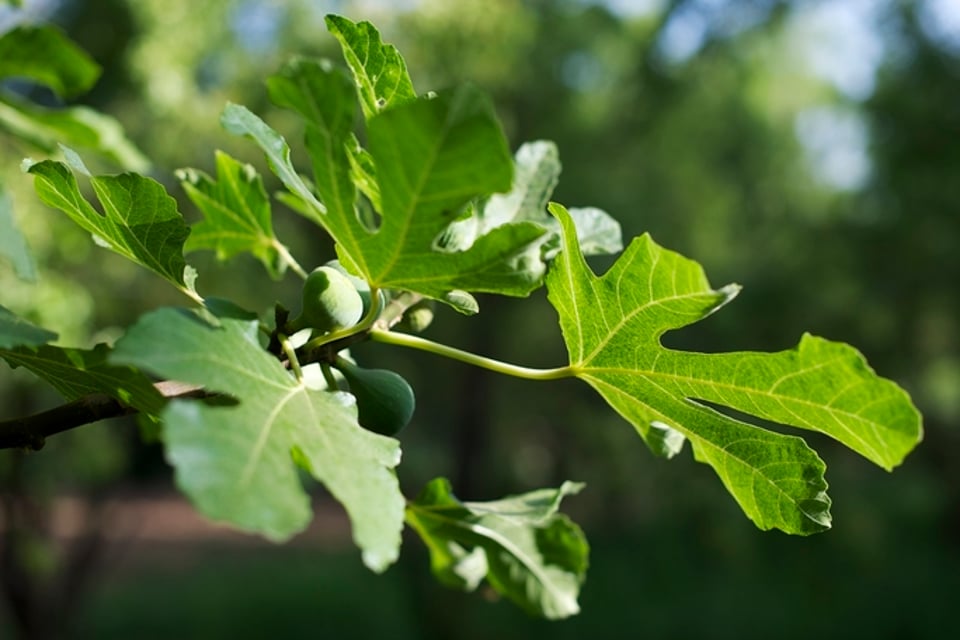Why Did Jesus Curse the Fig Tree?
Written by Tom Clark
A passage in the Gospels makes it sound like Jesus may have unjustly cursed a poor fig tree. But could there be more to the story—and a lesson for us to learn?

As Jesus and His disciples were traveling up to Jerusalem for what would be His final Passover with them in the flesh, He was hungry. In Mark’s account we read the following:
“And seeing from afar a fig tree having leaves, He went to see if perhaps He would find something on it. When He came to it, He found nothing but leaves, for it was not the season for figs. In response Jesus said to it, ‘Let no one eat fruit from you ever again.’ And His disciples heard it” (Mark 11:13-14).
A few verses later we read:
“Now in the morning, as they passed by, they saw the fig tree dried up from the roots. And Peter, remembering, said to Him, ‘Rabbi, look! The fig tree which You cursed has withered away’” (verses 20-21).
Have you ever wondered why Jesus would curse a poor fig tree for not having figs when it wasn’t even the season for figs? And more than that, why was this recorded and preserved through the ages for us to read today? What does He expect us to see and learn from this story?
Maybe we should learn something about fig trees
For starters, Adam Clarke’s commentary points out (as do several others) that the wording we have in the King James and New King James Versions is somewhat misleading. It shouldn’t read that it wasn’t the season for the tree to have figs, but rather not the typical season when they would harvest the figs.
I don’t have much experience growing figs, but according to what the commentaries say, given the climate in Judea, it was not at all uncommon for figs to ripen by the time of the Passover (in the spring of the year). In fact, commentaries and botany experts state that fig trees can bear fruit even before they sprout leaves.
Since this tree was already full of leaves, it should have had fruit, if it were going to produce any that year. It looked good, had many leaves, but it didn’t have any fruit. It was all promise, but no fulfillment.
We can be relieved that the Messiah didn’t have an unrealistic expectation of that tree. He rightly expected it should have had fruit. But why take the time to curse the tree in front of His disciples? And why cause this passage to be recorded for us to read today? God does not record things in the Bible without a good reason, so we should look a little deeper.
Lessons for the Jews of that day
There are a few related lessons regarding the Jews that we can see.
- The tree was indicative of many of the Jewish people of that day who worked very hard to appear religious on the outside. The rabbis had debated points of the law for centuries and were in the process of compiling the Talmud, a collection of the oral law and commentary on the Torah (the first five books of the Bible). The first part of the written Talmud, the Mishnah, which is dated to about A.D. 200, consists of 63 parts and is divided into 517 chapters.
- The Jews looked at themselves as the chosen and elect people of God. Therefore they despised anyone who was not a Hebrew, referring to them as gentiles. The most religiously pure would not associate with a gentile at all.
- However, as Jesus pointed out repeatedly, many of these Jews were hypocrites. Centuries after they were given God’s law (which was designed to help people live better), they had an elaborate profession of religion, but it had produced very little spiritual character. Many of them were, metaphorically, all leaves and no fruit.
That conclusion is pretty clear for us to see. Because so few of the Jews were faithful to God or spiritually changed by their adherence to the letter of God’s laws, God opened salvation to the gentiles and began building a Church not limited to Jews.
Years later, the apostle Paul used another analogy to explain this—he compared the Jews to tree branches that God had broken off and replaced by grafting on new branches, the gentiles (Romans 11:17-24). But Paul didn’t leave the Jews (and the rest of the Israelites) in a state of eternal hopelessness. He also talked about salvation being offered to them at a future time (verse 26).
To learn more about this, read “All Israel Will Be Saved!”
Lesson for the Church too?
But what about us today? Is there something for us to learn too?
Perhaps you can already see the point this is leading to. We also can be likened to a fig tree. After we have been called by God, repented, been baptized and received God’s Spirit, we should be bearing fruit (Matthew 3:8; John 15:16). In other words, we should be making spiritual progress and consistently building spiritual character.
As God looks at us today, does He see a fruitless fig tree or a fruitful fig tree?
That is a serious question for each of us to ask ourselves. We know the result for that fig tree. What can we expect if we are all leaves and no figs?










